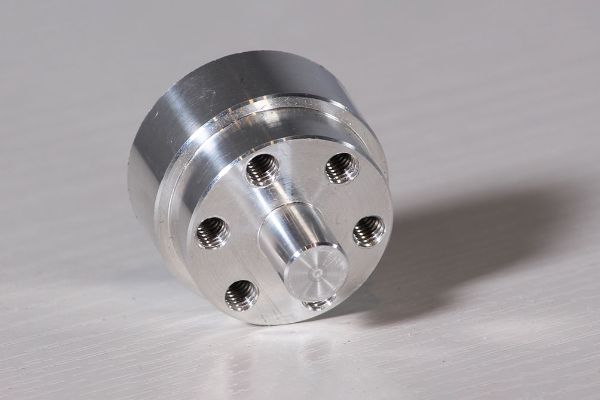Benefits and Features of CNC Precision Turning Parts
2024-07-03
CNC (Computer Numerical Control) precision turning parts offer several benefits and features that make them essential components in manufacturing and engineering. Here are the key advantages:
1. High Precision: CNC precision turning processes ensure tight tolerances and accurate dimensions, meeting exacting specifications and requirements for intricate parts and components.
2. Complex Geometries: CNC turning machines can produce parts with complex shapes, contours, and internal features that may be difficult or impossible to achieve with conventional machining methods.
3. Versatility: CNC turning can be used to manufacture a wide range of parts, from simple to highly complex designs, including shafts, pins, bushings, connectors, and custom components for various industries.
4. Consistency and Repeatability: CNC machines operate with high repeatability, ensuring consistent quality across large production runs. This reliability is crucial for maintaining uniformity and reliability in assembled products.
5. Efficiency: CNC turning processes are efficient, with reduced setup times and faster production rates compared to manual machining. This leads to increased productivity and shorter lead times for manufacturing parts.
6. Material Flexibility: CNC turning supports a variety of materials, including metals (such as aluminum, steel, titanium), plastics, composites, and even some ceramics, depending on the machine capabilities and tooling.
7. Cost-Effectiveness: While initial setup costs for CNC equipment may be higher, the ability to produce parts with minimal manual intervention, reduced scrap rates, and lower labor costs over time makes CNC turning cost-effective for high-volume production.
8. Automation Integration: CNC machines can be integrated with robotic systems and automated loading/unloading equipment, allowing for continuous operation and lights-out manufacturing capabilities.
9. Surface Finish: CNC turning can achieve excellent surface finishes, reducing the need for additional finishing processes like polishing or grinding, which saves time and improves final part quality.
10. Quality Control: CNC machines often feature built-in measurement systems and quality control protocols to monitor part dimensions and ensure adherence to specifications throughout the production process.
11. Design Flexibility: CAD/CAM software enables precise programming of CNC turning machines, facilitating design modifications and iterations to optimize part performance and manufacturability.
Overall, CNC precision turning parts offer superior precision, versatility, efficiency, and quality control capabilities, making them indispensable in industries ranging from aerospace and automotive to medical devices and electronics manufacturing.



